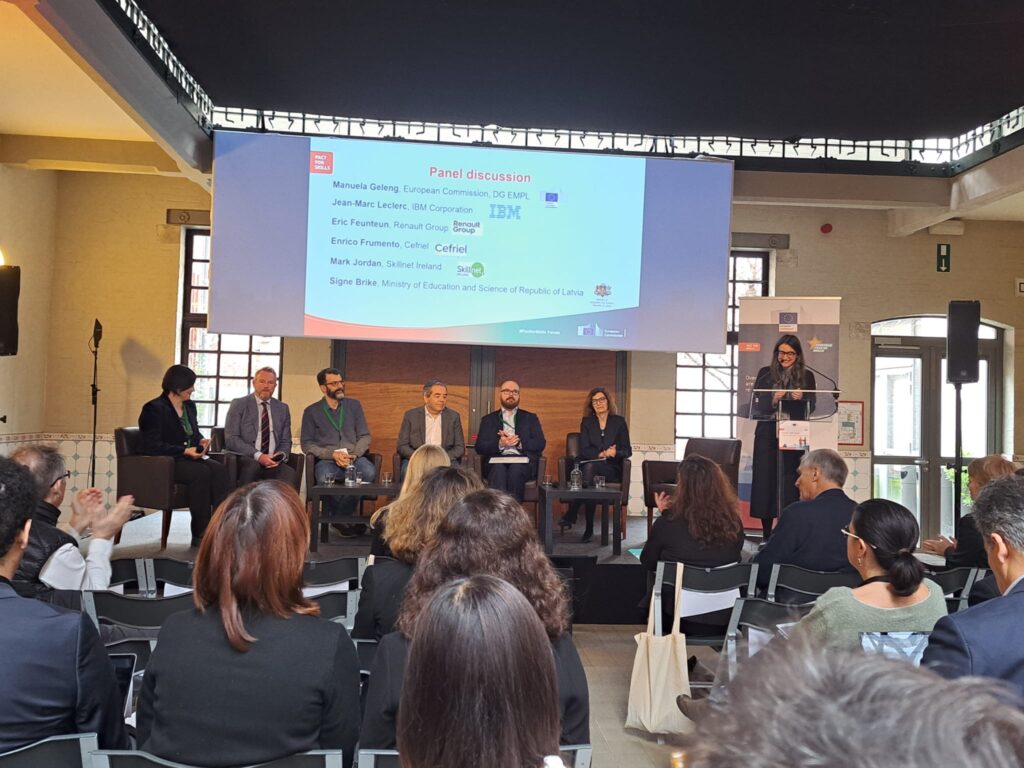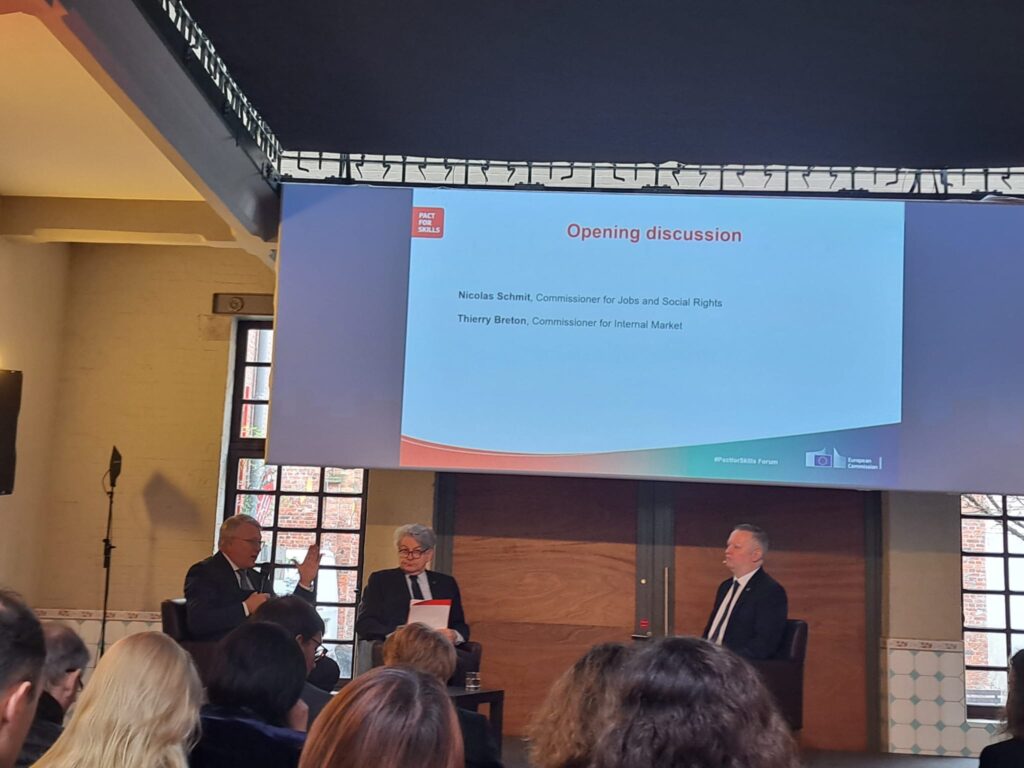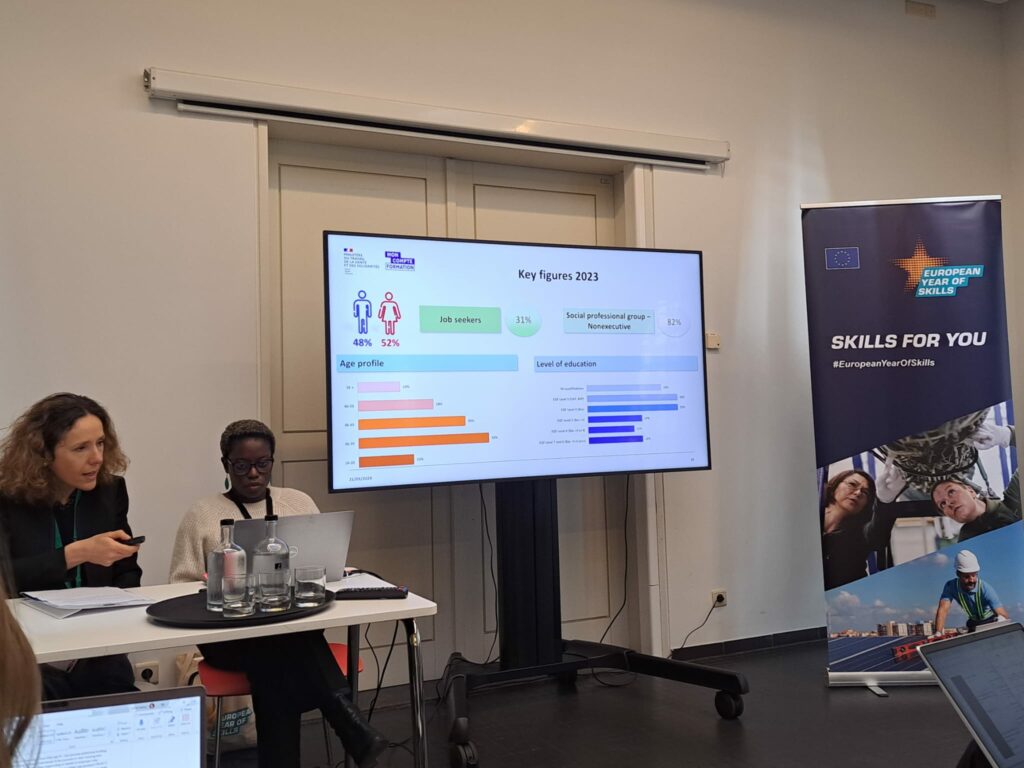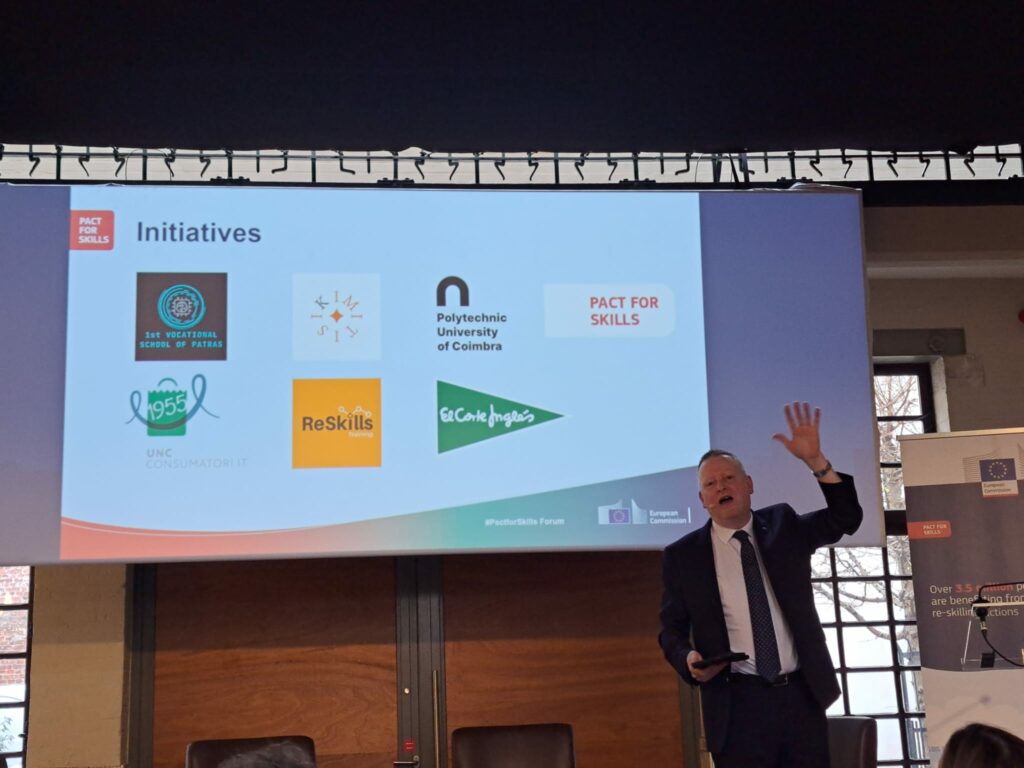A successful First Pact for Skills Forum – Unlocking skills potential across Europe
25/03/2024

In the context of the European Year of Skills, the European Commission Directorate General for Employment, Social Affairs and Inclusion (DG EMPL) organized the first Pact for Skills Forum “Unlocking skills potential across Europe” to provide an insight into the Pact’s achievements and outline its vision for future development.
The Pact of Skills: connecting industry, education and policy
The event kicked off with an exchange of views with European Commissioners for Job and Social Rights, Mr Nicolas Schmit, and for Internal Market, Mr Thierry Breton. Both Commissioners highlighted the challenge to attract and retain talent in Europe and that the Pact was born as an initiative within the European Skills Agenda to get relevant stakeholders from the industry, education and policy spheres together. The Pact is about people, about facilitating a skills revolution and promoting a culture of upskilling and reskilling while leaving no one behind. Mr Breton explained that, for the European Industry to be competitive and maximize its capacity, we need to address the skills shortages that especially SMEs are confronted with. There are many EU initiatives (Skills Academy, AI and cybersecurity industries support) and programmes with more than 65 billion to promote training, but member states and private entities should also contribute and embark on the strategies for the future of Europe (e.g. migration policies, support to SMEs, reinforce Industrial policies, etc).
Europe needs 20 million digital skilled people by 2030 (we are at 9.4 million now) while there are countries like India which graduate 1 million digital experts per year. As Commissioner Schmit highlighted, welcoming and hosting culture is important as well as guiding young people and women into STEAM fields, designing flexible upskilling and reskilling, promoting VET and the use of ILAs and micro-credentials. There is no need to talk about ‘new skills’ but a ‘new orientation’ of skills and more technical skills. “We need the European Year of Skills to last forever” he added.



Cooperation a key component to business success
The importance of cooperation and the idea that talent is a key component to business success was also stressed during the second panel (Working together to tackle skills shortages in the digital transition). The panel counted the participation of representatives from big companies, such as IBM Corporation or Renault Group, public authorities from the Ministry of Education and Science in Latvia and Skillnet Ireland and Ms Manuela Geleng (DG EMPL, Directorate B Jobs and Skills).
In the afternoon, three parallel thematic workshops were held on the topics of attracting and retaining skills and talent, supporting upskilling and reskilling through ILAs and addressing skills shortages through micro-credentials and Skills Academies.
Ms Olivia Montel, French Ministry of Labour, and Ms Marième Digne, Skills Department – Caisse de Dépots, presented the French example of Individual Learning Accounts for all, which raised a lot of interest from participants (this topic was already addressed during a webinar organised by EARLALL last year, see here.) The system provides an ILAs platform with individual training accounts for each person and the allocation of 500 or 800 EUR per year (with a maximum amount of 5.000 or 8.000 EUR – for people from disadvantaged backgrounds-) and a catalogue of training courses that the individual can choose from. Private companies and other stakeholders such as regions can top up the individual accounts via automatic or voluntary endowments.
The Pact for Skills and the European Year of Skills
The second event day was opened by Acting Director General DGEMPL, Ms Andriana Sukova, who congratulated the Pact for Skills members to be at the forefront of innovation and for organizing most of the 2000 events that are taking place during the European Year of Skills. She also preconized the importance of adopting skills-first approaches and supporting providers toward digital credentials. The skills challenge goes beyond the labour market and those 3 in 4 SMEs that acknowledge difficulties in recruiting people with the right competencies, but it is also about adult Europeans lacking basic digital skills. She acknowledged the European Commission Communication on the Action Plan on labour shortages published a couple of days earlier. EARLALL is contributing to this area through several projects such as LCAMP: Learner Centric Advanced Manufacturing Platform for CoVEs(on skills and Advanced Manufacturing) or TRAILS – Enabling data analytics for actions tackling skills shortages & mismatch.
Apart from panel discussions, the event also included sessions on synergies with the EAfA, World Café interactions and a networking dinner. Ms Ann Branch, DG EMPL, Head of Unit, closed the event and provided some key messages and takeaways. She stressed the importance of the regional dimension as it is the level closer to the people, the need to promote a training culture to accelerate change, to cross-fertilize with other initiatives, and to work together and cooperate to remain competitive. Skills are important not only for the education sector but for everyone and all sectors. The European Year of Skills has created momentum and we should capitalise on it to promote a skills revolution.




